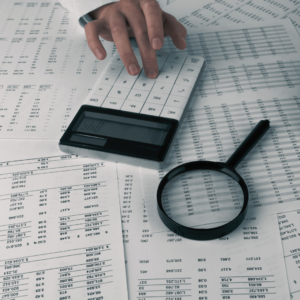Due diligence is a popular phrase in business; whatever the situation, you want to make sure the investment is sound, permissible and sustainable, with a clear understanding of the key risks and potential upsides. Commercial due diligence (CDD) is an important subset of this general approach. CCD is an independent and forward-thinking assessment of a company’s commercial attractiveness and the viability of its business plan. This analysis is otherwise known as strategic due diligence, in reference to the company’s long term plan.
Commercial due diligence allows private equity firms or strategic investors to test their investment hypothesis and gain greater confidence in the management’s business plan projections. It also provides reassurance to (co-)financers, like banks or government bodies.
A good CDD undertakes market, competitive, customer and company analysis to shed light on business plan assumptions at granular level. This information can feed straight into the investor’s valuation model, pinpointing risks and sensitivities, highlighting potential advantages. Further to this, it also provides the investor with crucial intelligence going into negotiations about the company’s valuation. In this article, we break down the key features of this valuable document in more detail.
Table of Contents
Key elements of a commercial due diligence plan
Obviously, each section of a CDD plan needs to be crafted towards each specific case and investment hypothesis. This will depend on the company’s sector, market niche, competition, projections and commercial performance to date. Below are the key questions that need to be asked under these umbrella terms.
Market: Does the company address an attractive niche?
Primarily, we need to define, map and segment their target market. This will give them a robust estimate of the market size. From here they can assess:
- Key purchasing criteria, price elasticity, demand drivers and market trends.
- Economic and regulatory sensitivities.
- The potential for technological disruption or new substitute products.
- Distribution chain structure, where are the profits made, and where margin pressures might arise.
Competition: Is this company a winner?
Even if a company has a compelling market niche, it is still important to analyse the competition. By looking at their competitors’ value proposition, we can make assessments about how the company’s product or service is likely to perform. This section should articulate other insights, including:
- Competitors’ product portfolios, pricing and cost positions, their market share and performance.
- Industry dynamics and trends.
- The potential for new entrants or barriers to entry.
Commercial performance: Can this company grow and sustain value?
From here, a commercial due diligence report should analyse the company’s current positioning, customer base, commercial performance and sustainability. This analysis should include:
- Recent marketing/sales efforts and performance, current pipeline and historical tender success rates.
- Brand strength and company reputation.
- Quality of customer base and development potential.
- Customer retention track record.
- Customer satisfaction measurements and future buying intentions.
- A SWOT analysis.
Business plan projections: Can the company achieve its revenue and margin projections?
This crucial section will outline the risks and upsides of the company’s commercial strategy. It will assess how the company’s strategy aligns with goals, the market and the competitive reality of the sector. This analysis will include:
- A demonstration that revenue and margin forecasts are supported by clear and defendable assumptions.
- A description of the potential sensitivities, their likelihood and how they could impact valuations.
- An assessment of what further growth opportunities and margin upsides there may be.
Why commercial due diligence is not only about market analysis
A typical misconception is that commercial due diligence is about collecting mountains of market data and stuffing powerpoints full of statistics. On the contrary, a well-executed CDD begins with investment hypotheses and business plan drivers. From here, they focus on gathering relevant information to assess the acquisition’s strategic rationale and business plan projections. As such, a detailed market analysis is a means, not an end.
Sure enough, market data is useful, but often the deepest insights come from interviewing various market parties and experts, especially deep-dive interviews with the target market. In the end, CDD should be about business projections and understanding hypothetical scenarios, enabling investors and companies to simulate different outcomes. Subsequently, investors can better understand the sensitivity of a business plan’s various assumptions.
But commercial due diligence is not just about industry expertise, either
While in some cases a rapid in-house CDD may be more efficient, there are great benefits to an independent external viewpoint, as we touched on above. When assessing a deal – especially when entering new markets or if a company needs to convince banks or other third-party financiers – external expertise and real-life market intelligence is indispensable.
That said, a full-blown, thick, data-packed CDD report delivered by a consulting giant or Big 4 advisory is often too expensive, especially for mid-sized deals. Again, while they are often elegant market and competitive analyses, they are sometimes not sufficiently focused on the business plan projections.
This is why in many cases, investors will solicit the opinion of a local industry expert, often with the intention of involving this individual as a senior executive after the deal is secured. However, although seemingly efficient, this strategy is often superficial and poorly focused. For instance, occasionally, such experts will provide a CDD without sufficient detail – and for big investors, a few bullet points is no substitute for a bankable report.
The optimal solution may be for an investor to hire an experienced CDD specialist in addition to the industry expert(s). With the CDD specialist at the helm, the report can effectively leverage the industry expert’s knowledge supported by well-formulated hypotheses and storylining. This will ensure strong focus on the business plan projections and delivering a bankable report with minimal stress on the client’s side.
The bottom line
Commercial due diligence allows investors to gain greater confidence in their investee’s business plan projections. However, CDD is about more than market data; instead, it is about projected scenarios, sustainability and sensitivities, supported by market analysis and in-depth industry interviews, which are tools to address the investment hypotheses.
Often the way to produce a granular, robust report is to assemble a small team consisting of an independent senior CDD specialist and cherry-picked industry experts. There’s certainly been a trend towards this approach in recent years, as for many businesses, this is the most efficient, economical and reliable approach. Digital talent platforms like Outvise are the ideal place to source such expertise – take a look at our curated catalogue of experts.
André Schuurman specialises in Commercial Due Diligence and strategic
advisory services for financial and corporate investors.
Today André is an independent advisor working across Europe. He previously
set up and led a regional Commercial Due Diligence team at KPMG Deal
Advisory, after building his skills at OC&C Strategy Consultants (London) and
Cluster Consulting (Barcelona, now part of Oliver Wyman).
Having lived in various countries in Europe, André loves learning ever more
about the continent’s history, preferably by visiting people and places.





No comments yet
There are no comments on this post yet.